Home > MHTTCs Implementing Change

MIC Stories (MHTTCs Implementing Change) feature our MHTTC Regional Centers’ intensive technical assistance projects that had a significant impact on mental health prevention, treatment, or recovery support services.

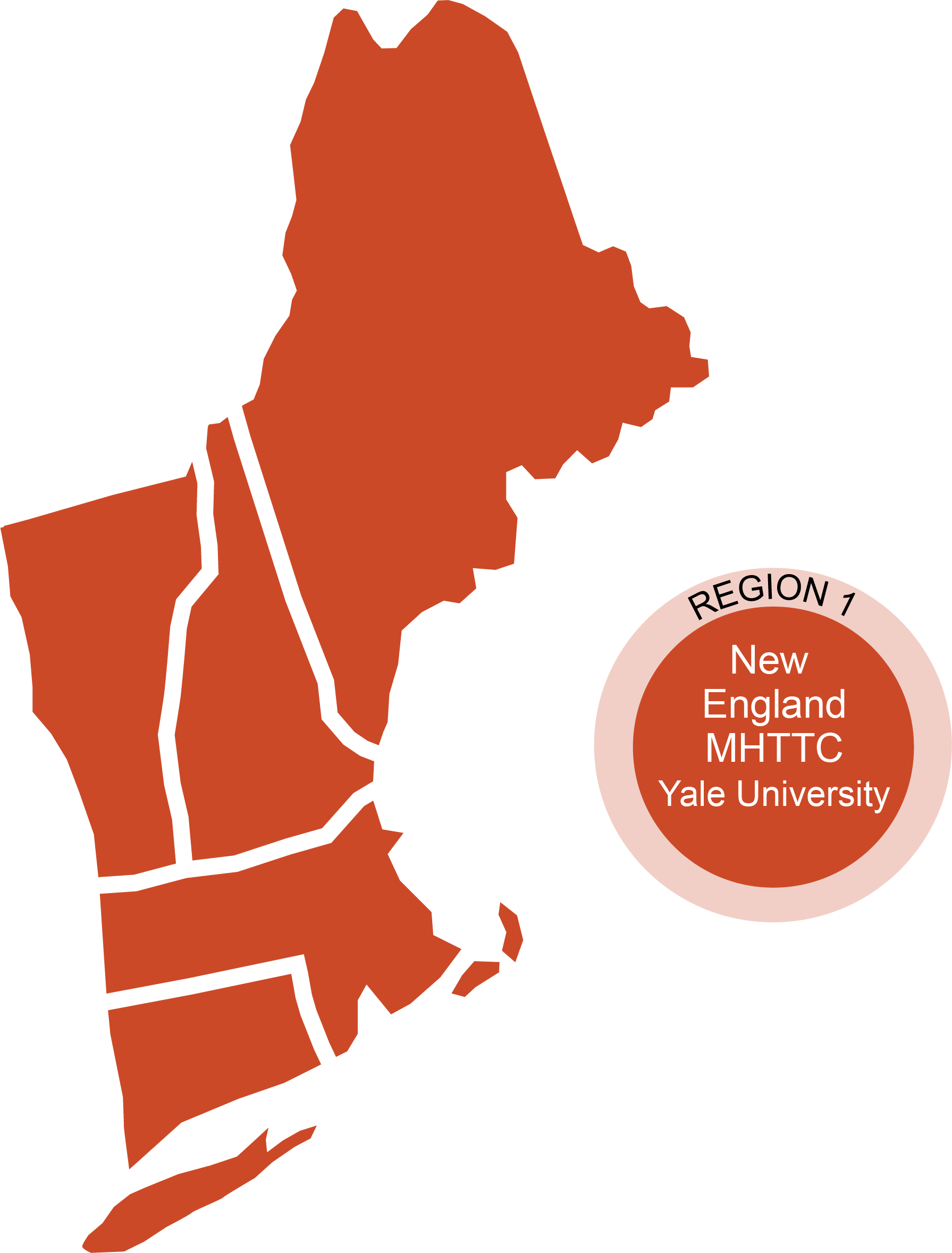
Person-Centered Recovery Planning in Behavioral Health
The New England MHTTC Person-Centered Recovery Planning (PCRP) Learning Collaborative project is a multi-agency learning collaborative to provide intense training, TA, and implementation support around the practice of PCRP. It began with a series of introductory webinars in December 2019 and was scheduled to conclude in December 2020; however, supports will be extended for 3 months due to significant project disruptions caused by the COVID-19 pandemic. Primary faculty are Dr. Janis Tondora of the Yale Program for Recovery and Community Health and Dr. Dan Wartenberg of Newport Mental Health.
Childhood-Trauma Learning Collaborative
Two-thirds of children, nationally, reported at least one traumatic event by age 16, with significant numbers of children in New England states experiencing adverse childhood experiences (Sacks and Murphy, 2018). To strengthen school mental health supports that address the needs of children who have experienced/are at risk of experiencing significant trauma, the New England MHTTC developed the Childhood-Trauma Learning Collaborative (C-TLC).
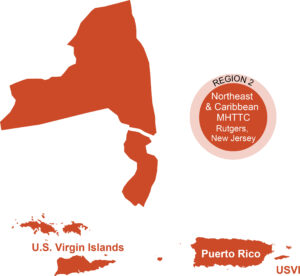
Motivational Interviewing Technical Assistance Project
Between September 2019 and September 2020, Northeast and Caribbean MHTTC provided intensive technical assistance (TA) in Motivational Interviewing for four behavioral health service provider agencies. The project included face-to-face tailored trainings, consultation, and implementation support for providers, supervisors, and administrators, as well as an ongoing learning community for each group.
Supporting the Mental Health of Puerto Rican Youth
Puerto Rican teenagers have unique mental health needs due to many traumatic events that have occurred in the region since 2017. Starting in September 2021 (and currently ongoing), the Northeast and Caribbean MHTTC has provided technical assistance on youth mental health to the Comprehensive Adolescent Health Services (SISA, in Spanish) Program of the Puerto Rico Department of Health, with the ultimate goal of boosting mental health awareness across Puerto Rican youth.
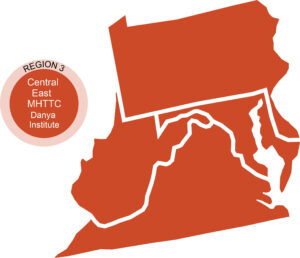
Workforce Recruitment and Retention Collaborative
The Central East MHTTC, in collaboration with the Annapolis Coalition on the Behavioral Health Workforce and the Community Behavioral Health Association of Maryland, invited organizations to participate in a Workforce Recruitment and Retention Collaborative that would educate community-based behavioral health providers in Maryland on the multiple factors contributing to the crisis in the recruitment and retention of behavioral staff.
With the start of COVID in 2019, its continued dominance in 2020, and its lingering effects, many public school teachers and staff in the Central East region contemplated leaving the profession. The Central East MHTTC, in its assessment of the State Departments of Education and local school districts, found that the school mental health workforce wanted more training and technical assistance in compassion fatigue.
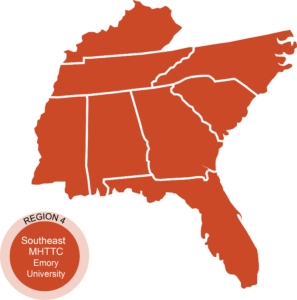
School Mental Health Regional Learning Community
The Southeast MHTTC, in collaboration with the National Center for School Mental Health, implemented the School Mental Health Regional Learning Community to engage the region’s school mental health leaders in advancing comprehensive school-based mental health systems.
Certified Community Behavioral Health Clinic (CCBHC) Learning Community
The Southeast MHTTC, in collaboration with the National Council for Mental Wellbeing CCBHC Success Center, implemented a Southeast CCBHC Learning Community to engage regional mental health state leaders and provider organizations in advancing this innovative approach to providing access to integrated and comprehensive mental health and addiction care.
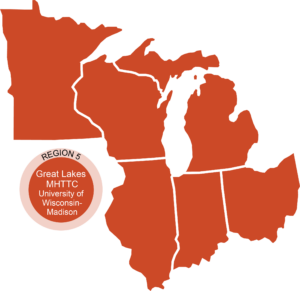
Youth/Teen Mental Health First Aid Training Initiative
Through support and partnership with the Illinois Association for Behavioral Health (IABH), Great Lakes MHTTC committed to conducting a Youth Mental Health First Aid (YMHFA) Training Initiative in 2019 to provide training to adults who work with youth on how to identify, understand and respond to signs of mental illnesses and substance use disorders. IABH trained staff to become YMHFA trainers and held nine trainings and trained over 200 adults to become Youth Mental Health First Aiders. As we were in the middle of our first year of this initiative, a new pilot program for Teen Mental Health First Aid (tMHFA) was coming into fruition.
Wisconsin Mental Health Change Leader Academy
Dating back approximately 10 years, this collaboration between Great Lakes MHTTC and the Wisconsin Department of Health Services seeks to reduce 30-day readmission rates to inpatient psychiatric hospitals. Each year, different county crisis services apply to participate and learn about the NIATx model for process improvement, develop a change project, and subsequently implement new strategies to achieve their goals.
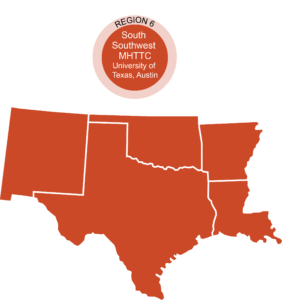
Texas School Mental Health Professional Learning Community and Support of Small and Rural Districts
In partnership with the Texas Education Agency and Texas Health and Human Services Commission, the South Southwest MHTTC began a monthly Professional Learning Community to train regional staff as trainers in the National School Mental Health Best Practices: Implementation Guidance Modules and regional coaches to support implementation within LEAs. To increase the relevance of the learning opportunity and pilot implementation within the state, the Texas Education Agency provided a grant to each regional education center to provide training and technical assistance to five small and rural school districts in their region.
Individual Placement and Supports (IPS) in First Episode Psychosis Project
The South Southwest MHTTC partnered with Thresholds to provide intensive technical assistance on Individual Placement and Supports (IPS) for First Episode Psychosis (FEP) Coordinated Specialty Care teams to better support the educational and career goals of the people they serve. While most staff had some training and skills in IPS, they identified a need for further skill development in applying the model to youth and young adults.
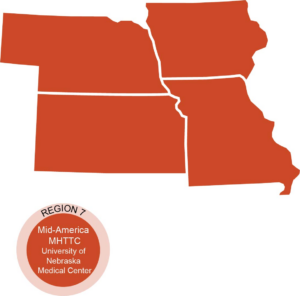
The project provided training and technical assistance in enhancing integrated care partnerships and exploring business models for integrated care between a behavioral health organization and a primary care clinic/hospital organization. Additionally, the Mid-America MHTTC provided technical assistance on increasing integration between behavioral health and medical staff to benefit patient experience and outcomes.
The Nebraska School Mental Health Project
With the ever-growing need for school mental health services across the state of Nebraska, the Nebraska Department of Education (NDE) created the Nebraska School Mental Health Project to provide resources to support school mental health efforts across the state. As part of this project, they identified a need for leadership training and guided strategic planning in implementing comprehensive school mental health systems and best practices and partnered with Mid-America MHTTC for training and technical assistance in this area.
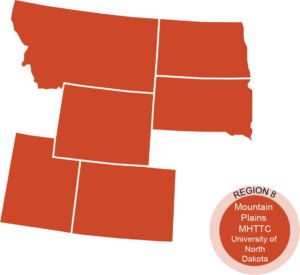
Traumatic Brain Injury and Mental Health: Intensive Workshops
Through collaboration with Dr. Smith’s office, the Mountain Plains MHTTC leveraged a connection with the National Association of State Head Injury Administrators (NASHIA) to provide a comprehensive workshop series on evidence-based practices for supporting persons with TBI and co-occurring mental health disorders.
Trauma Responsive Practices in Education Training of Trainers
With the challenges faced by rural communities in the region when addressing youth mental health and well-being (e.g., stigma, lack of available and affordable resources and accessibility of mental health services), the Mountain Plains MHTTC, in collaboration with Resilient Futures, conducted a training of trainers that provided tools and resources to appropriately and effectively implement trauma-informed practices in their communities and schools.
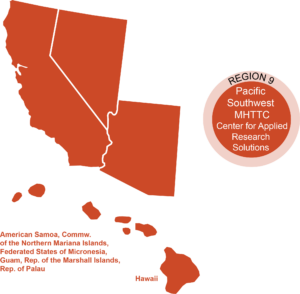
Bold Conversations Peer Learning Community (PLC)
The Bold Conversations Peer Learning Community (PLC) was a six-part, cohort-based workshop series led by the Pacific Southwest MHTTC in the Winter of 2021 for mental health practitioners and mental wellness advocates in the region and throughout the United States. Participants in the PLC were able to increase their awareness of self, enhance their skills to communicate more effectively, and increase their confidence in facilitating and engaging in uncomfortable conversations.
School Mental Health Grief Readiness Pilot Lab & Series
To address the need for evidence-based grief support in the mental health field, the Pacific Southwest MHTTC led a 6-week Grief Readiness Pilot Lab in Spring 2021 to guide school mental health practitioners to explore the topic of grief and develop Grief Readiness Plans. Then, informed by the pilot, the Pacific Southwest MHTTC offered a Grief Readiness Series for school and mental health leaders nationwide in the fall of 2021 to be purposefully timed before the end of year holiday season.
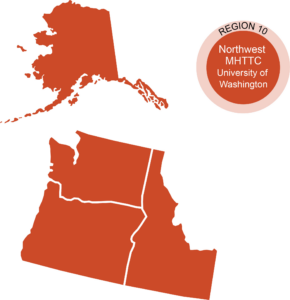
Interconnected Systems Framework Demonstration Project
The Northwest ISF Demonstration Project aims to impact student achievement and attainment, increase identification and impact on students with internalizing behaviors, improve wellness, and reduce rates of student discipline problems and related impact of trauma, opioid and substance misuse, suicide prevention, depression, and/or anxiety. The project goals are to increase the capacity of districts to install and sustain effective systems that support the mental wellness of all students at the school level.
The 18-month project (January 2021-June 2022) involved intensive TA to a single large Behavioral Health Organization in Tacoma, WA to implement STRIDE groups to improve health outcomes among their adult clients with psychosis. The Northwest MHTTC partnered with the developers of the STRIDE intervention, researchers and trainers from the Kaiser Permanente Center for Health Research in Portland, OR. Together, they supported Comprehensive Life Resources to launch STRIDE lifestyle groups and develop a plan for sustaining and scaling this program throughout the adult outpatient care programs at their organization.